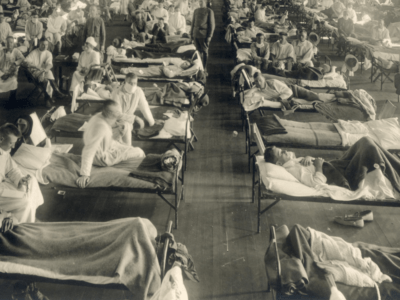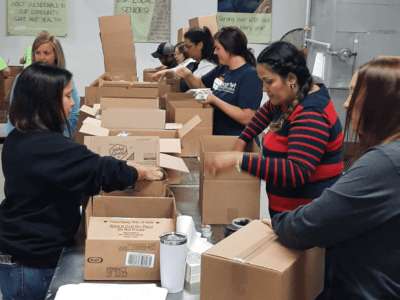Inequities in health in Michigan today account for $2.2 billion in excess medical care costs and $1.9 billion in untapped productivity.
By reducing health disparities, we can create a potential economic gain of $4.1 billion per year for Michigan’s economy.
In order for all of our children, families and communities to thrive, we must address the significant discrepancies across a range of health outcomes between African American, Latinx, and Indigenous people and their White neighbors.
Why?
The answer is both simple and complex. Systemic inequities have increased due to barriers and obstacles too many families and communities face when trying to access the resources they need to be healthy. In the public health field these are called the social determinants of health. The World Health Organization defines these factors as “the conditions in which people are born, grow, work, live and age, and the wider set of forces and systems shaping the conditions of daily life.”
Unfortunately, systemic racism and sexism have disproportionately left Michiganders of color and many women unable to access affordable and nutritious food, reliable transportation, high quality schools for their children, affordable and safe housing, green spaces, safe neighborhoods and affordable, quality health care.
We know how to fix this challenge.
The first step is to commit to promoting health equity across the entire state for every community.
According to the U.S. Centers for Disease Control and Prevention, health equity is when each person has the chance to reach “his or her full health potential,” without facing obstacles from “social position or other socially determined circumstances.”
Health equity can be viewed both as a process – removing economic and social obstacles to health such as poverty and discrimination, and also as an outcome – ensuring everyone has a fair and just opportunity to be healthy. For example, that means that how we ensure everyone has access to the means to feed and nurture their children matters as much as ensuring no children are hungry.
"The first step is to commit to promoting health equity across the entire state for every community"
To get to the root cause of this problem, we have to ask why are some families unable to get enough to eat each day? What is it about how we make food available that leads to inequitable access?
The answer begins with the reality that we will have to work differently together, allocate resources differently, and be willing to have tough conversations about what is ‘fair’, ‘equal’ and ‘equitable.’
Within a health equity context, equal is not necessarily the same thing as fair. But making sure that each family and community gets what it needs to thrive is an equitable approach that can lead to a more vibrant state.
We have an opportunity to work with our communities to create innovative ways to utilize federal dollars coming into our state to transform our system and bring about better health outcomes for our children and families.
W.K. Kellogg Foundation grantees are building new ways to support equitable access to the social determinants of health.
The Detroit Black Community Food Security Network works on the leading edge of food security, ensuring that Detroit residents have access to affordable, nutritious and culturally appropriate food. Their work includes a range of activities and trainings, including operating an urban farm. When completed, their Detroit Food Commons project will support food access, food entrepreneurs and community gatherings.
The pandemic revealed that our local public health infrastructure has suffered from underinvestment and that many health departments across the state had trouble fully responding to the needs of their communities. The Michigan Association for Local Public Health is focused on helping departments across the state embrace their equity directives and provide services to our most vulnerable citizens.
Access to healthcare is an essential part of the overall health of our state. The Michigan League for Public Policy is part of a national effort to increase the number of Medicaid eligible children who access those benefits and can receive affordable care.
Hope Starts Here is a community driven early childhood initiative in the city of Detroit. It is made up of several buckets of work that community stakeholders identified as important for children and families to thrive. Imperative One of the six imperatives Hope Starts Here works toward seeks to promote the health, development and well-being of all Detroit children, from before they are born through age 8, by connecting Detroit’s children and caregivers to high quality health care.





Comments